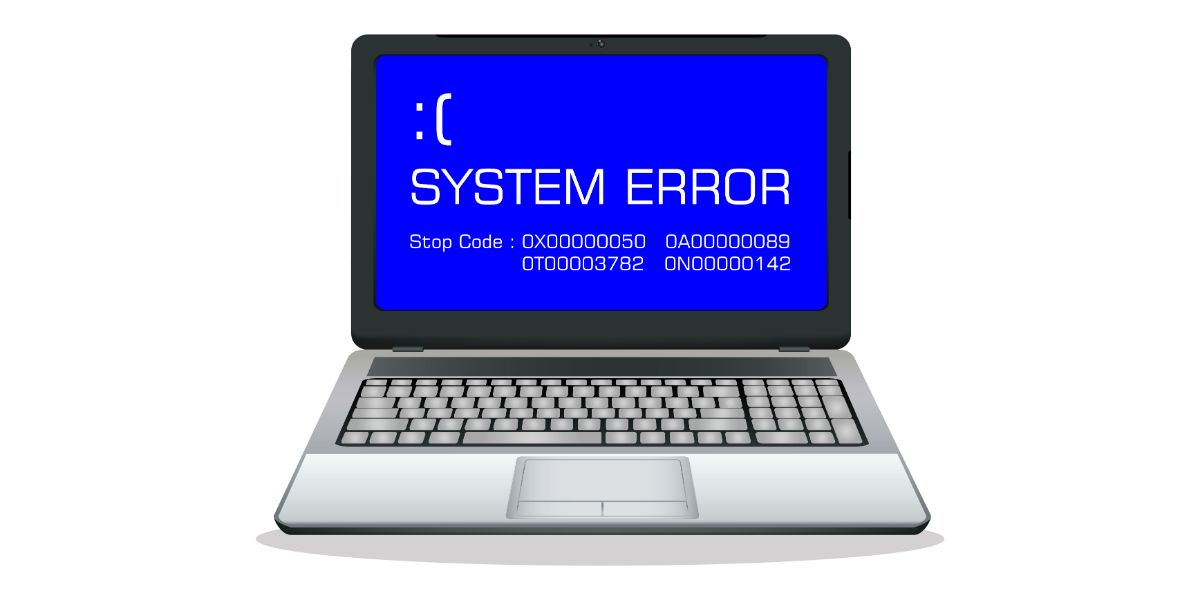Disclaimer: This post may contain affiliate links, meaning we get a small commission if you make a purchase through our links, at no cost to you. For more information, please visit our Disclaimer Page.
For the average user, internet access is one of the most important aspects of any computer system. Whether it is a desktop or a laptop, most people expect their modern devices to have web access.
More than that, we also expect to have stable internet connections while using the service. This would include visiting sites, running web-based applications, and sending or receiving data with no noticeable lag.
Unfortunately, the internet is like any other network that needs to run across a large, far-reaching network. There are times when services can be slow. We cannot send or receive the necesary information.
In most cases, these situations are mere hiccups in the internet itself, and service providers are quick to restore our connections to their full function. However, some users wonder if having a slow connection might cause further issues with their systems. And that’s what we are going to talk about today.
Table of Contents
What Are Possible Reasons For Computer Crashes? (6 Signs)
For the most part, we can divide computer crashes into either software or hardware issues. Once we dig deeper into either of these categories, several possibilities within each one could cause a whole operating system to go down. Your computer may restart itself if the crash is minor, but most of these incidents require you to manually power up the device.
Once you do, you may need to perform some diagnostic checks before you can use your system properly. Some utility tools can help you with this part of the process, but we will try to identify some of the most common reasons why your system might fail in this manner.
1. Critical Issues in Programs
A program or application you might use could cause the system to crash. In most cases, you will see the app close abruptly and return you to the desktop.
However, if the issue with this particular app is serious enough, it may cause a system-wide glitch that can affect the whole operating system. This would force you to restart the computer to get back in and identify which program caused the problem.
2. Overheating
Overheating is one of the most common things that can lead to a PC or laptop crash. Many of your computer’s internal components generate heat as they work. The more resources you need your system to deliver, the hotter some parts inside it may run.
Excessive heat does not mix well with electronics, but developers know that parts of a system will give off heat as they use energy. To counter this, fans and other cooling devices work alongside other pieces of hardware to keep things cool.
3. Bad Processors
A faulty processor could be the main culprit if your computer keeps shutting down without getting too hot inside. Your computer uses a central processor to manage your system’s data requirements.
Some devices come with a graphics chipset the CPU integrates to handle display tasks. But you may have a rig that comes with a separate processor for graphics. In either case, these kinds of processors can crash as well.
If your processors cannot keep up with tasks, it will mess up the whole system. When this happens, it will shut itself down.
4. Jumbled or Corrupted Files
Your operating system needs to be able to organize its files in a way that makes sense. The disorganization could lead to system crashes over time if it cannot. Part of this has to do with the way different files handle processes for the operating system.
Many of these files need to be in particular locations to be effective. If the system sends out a request and doesn’t find the necessary file in its appropriate location, it may run into an error it cannot reconcile. In turn, this could lead it to shut down.
File corruption works much the same way. If the computer cannot read bits of data in a file due to corruption levels, it may not be able to perform a critical operation that keeps things going.
5. System Requirements
Various applications need your computer to meet some minimum requirements to run effectively. While some programs might run slowly or inefficiently if your computer doesn’t come up to this level, many others cannot run at all.
When this happens, it isn’t uncommon for the application to crash on the desktop whenever you try to run it. However, more serious discrepancies between the application’s needs and your system’s resources could cause everything to shut down.
6. Memory Consumption
On a related note, your system needs memory to hold data in readiness for requests. There are different types of memory, but most computers will need at least a bit of this resource free to function properly.
If your operating system runs out of memory, some temporary data loss is likely. Should it lose critical data, however, it may restart itself. Without any room to perform new tasks, your computer may not know what to do other than shut itself down.
How Can I Fix a Crashing Computer? (5 Ways)
We will provide basic troubleshooting tips related to the major problems we outlined earlier. These may not be the only things you can do to stop your computer from freezing or shutting down. However, the information here represents some of the easiest fixes you should be able to try on your own.
1. Fixing Critical Issues
If your computer can tell you why the app crashed its system, it is possible that you can disable whatever setting in that app is making the system behave this way. If things are still unclear, you can try turning off or uninstalling the app fully to see if the problem persists.
2. Cooling It Off
If cooling units can’t keep up, critical system parts could overheat. You may get sluggish performance from your computer in these cases, but more serious incidents could cause the system to turn itself off completely as a way to save the parts from catastrophic damage. Otherwise, you can also replace the thermal paste.
3. Processors
If you’re dealing with bad processors, your only option may be to upgrade your system. More powerful processors can handle a greater number of tasks at once, and they can also deal with more resource-intensive applications. Performing these upgrades can also help your computer deal with increased system requirements that might cause it to freeze.
4. Fixing Files
It is possible that you can download the specific files that are causing problems in your system. Replacing corrupted versions of them with clean ones would be one way to stop freezes or crashes. However, you would have to know which files are bad.
To determine this, you may need to run a diagnostic. Some utility tools might be able to make automatic repairs to parts of your system for you. If the corruption is bad enough, you might need to do a system restore.
5. Memory
Giving your computer more memory to work with will reduce the chances it runs out of this resource during a crucial operation.
Can Slow Internet Cause a Computer To Crash or Freeze?
Slow internet should not cause a computer system to crash. It is possible that a slow internet connection could cause problems with applications that need a stable internet connection to give you the best performance.
However, not many things about such a connection should cause your computer to crash its whole operating system. It is more likely that some sort of improper configuration would cause your Wi-Fi network itself to crash, thus requiring you to turn off or reset the network before you can restore your computer’s connection to the internet.
As with system shutdowns, a slow connection to the internet should not cause an entire computer to freeze. At most, you should notice that accessing web pages or performing similar operations might be slow or hard to get through.
These issues would result from a slow internet connection, but you should only notice them when working with programs trying to send or receive information through the web.
In most cases, this will be an internet hardware issue. Your modem or router could be experiencing glitches that cause one or the other to affect the efficiency of your connection. If so, you can try restarting one or both of these to see if the problem goes away.
Should it persist, you can see if there is any issue on your network provider’s end. You may need to wait for your carrier to fix a glitch in their system before your internet speed returns. However, keep in mind that missing or outdated software could also cause your internet connection to be sluggish.
That said, any computer uses some hardware related to the system’s connection to the web. A slow connection to the internet could show that there is a problem with the computer hardware that governs how the machine keeps its connection going.
You might first check how this hardware behaves in your system. If anything is off, you may need to reconfigure or update this hardware. We can go over specifics on how to do this in the following section.
Why Does My PC Crash When I Connect It to Wi-Fi? (Solved)
A driver issue is probably the most likely cause for a complete PC shut down when you try to connect to a Wi-Fi network. You can think of these things as files containing instructions that tell parts of the computer’s hardware how to behave properly.
If drivers that relate to a specific component are not working properly, that component may not get the instructions it needs to do its job. As a result, the operation may not work. Similarly, if the computer can’t figure out what to do, the software issue may result in a complete shutdown.
It is a good idea to check your drivers to see if any of them are missing. If this is the case, you can download the appropriate drivers that your computer’s manufacturer recommends.
Because this issue relates to you trying to get on a Wi-Fi network, you may need to facilitate a wired connection to download the needed files. You can also check your network adapter.
This is one of the main components that helps your computer connect to any Wi-Fi network. Computers have cards that deal with the network, and your errors could cause a system-wide problem when connecting to a wireless network.
Conclusion
A slow internet connection can be a major annoyance, especially if you need a fast one for professional matters. However, a problematic connection should not be the major cause of a complete shutdown of your device’s operating system.
If you do experience something like this, there are other hardware or software issues you should explore first. You can take a look at some of the most common examples we’ve listed to see if the fixes here restore your computer.


